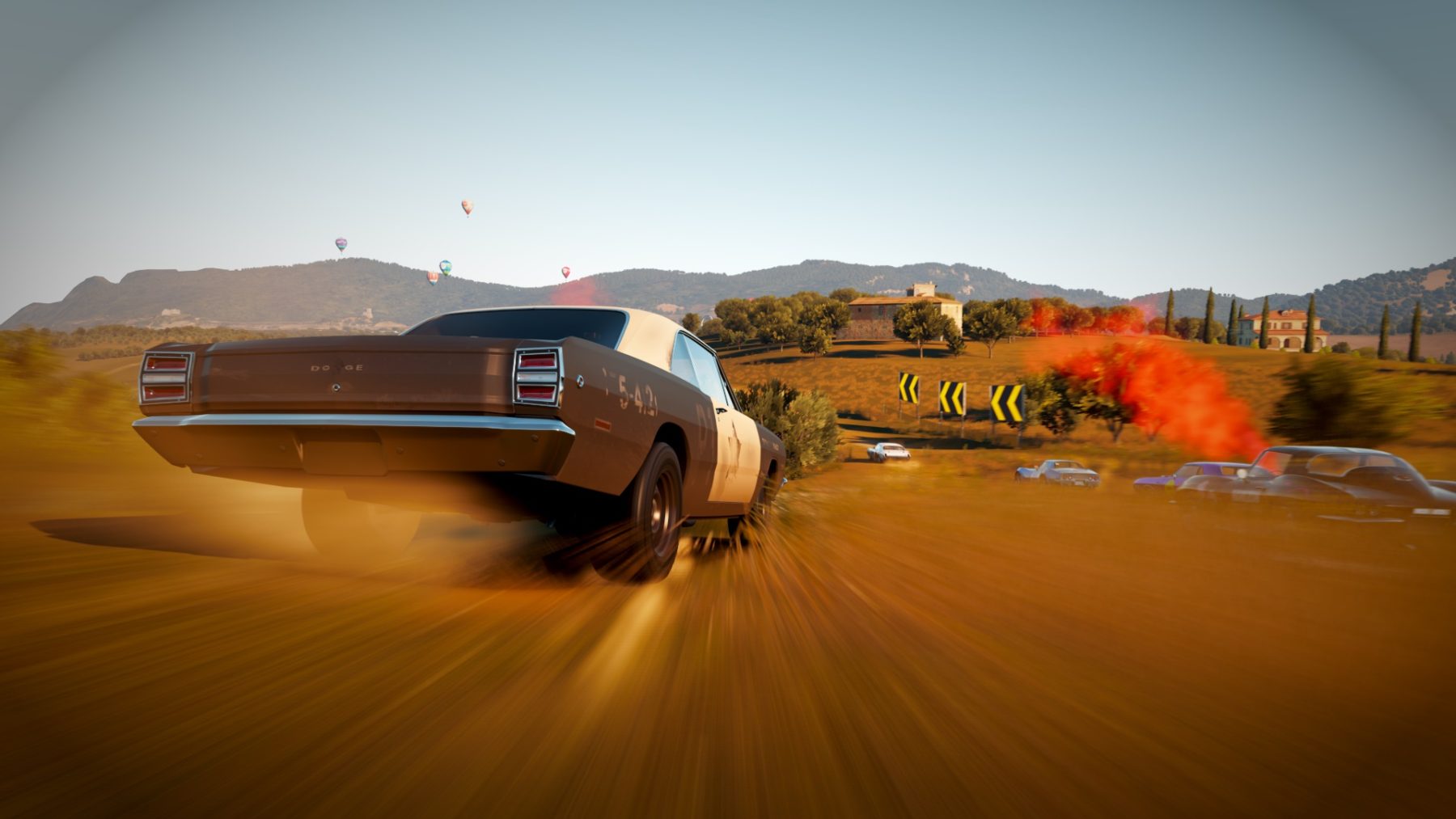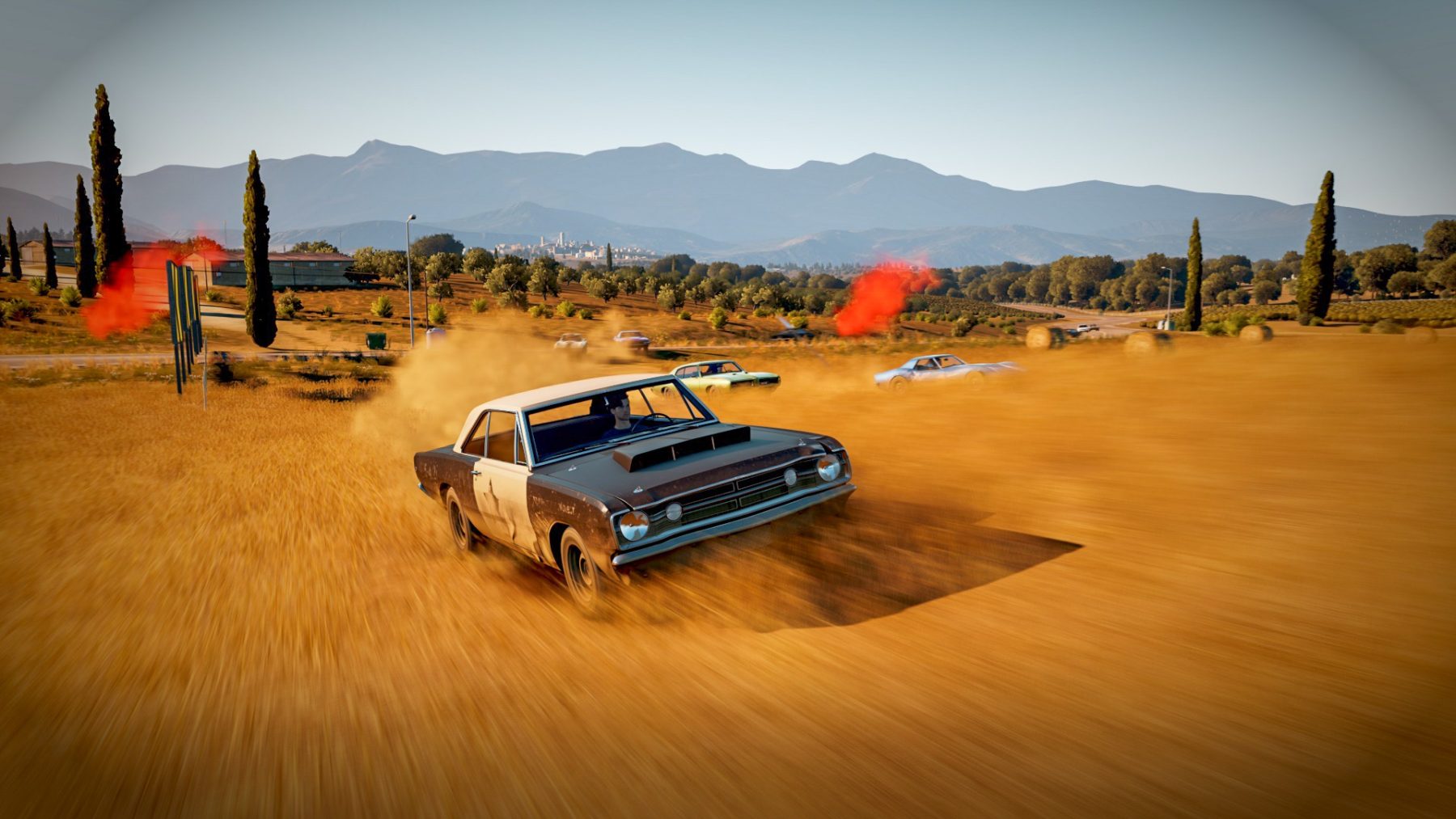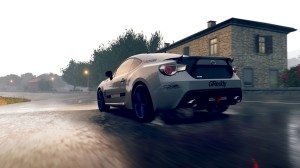Boar Games Interviews: Grant Orban of Playground Games
In today’s gaming world of big budgets, glitzy graphics and massive press expos, the role of game designer has, to some, become as coveted as that of politician or world-famous movie star. But what does a game designer’s role actually entail? What are the challenges they face? And how does one become a designer in this ever-expanding and competitive industry?
To find the answers to these questions for our careers issue, our Deputy Editor Joe Baker was lucky enough to speak to Grant Orban, a game designer at Playground Games, operating in Leamington Spa (you know the one, it’s got all those bloody students in it). Grant worked on the recently released and fantastically dynamic racing game Forza Horizon 2, and told Boar Games of his experiences working in the industry, as well as giving some handy tips on how you too could become a professional game designer: [divider]
Thanks very much for talking to Boar Games! Firstly, for those who don’t know, could you explain a bit about what your role as a game designer entails?
The game designer’s job is typically to design and specify everything in a game. This encompasses grand high-level concepts (‘How can we make this game as social as possible?’) down to lower level details of exactly how certain mechanics work (‘How does civilian traffic behaviour work at a roundabout? How does the player’s actions affect this?’). A game designer must additionally work within the constraints of a project. These can include time constraints as well as technical ones. As development progresses a designer’s role shifts more towards balancing, tweaking, and altering features based on changing requirements or feedback – for example changing the difficulty of a race or how and when a feature is introduced to the player.
What made you want to get into the world of game design?
It might sound cliché but I’ve loved games since I played my first one (Star Wars on the NES). As I got older I started messing with programmes such as GameMaker and RPGMaker to create experiences I thought might be fun (with varying success!). When I was at university I decided that I couldn’t imagine myself doing anything else. If you’re going to spend 40+ hours a week doing something, it may as well be something you love.
Speaking of games, do you have a particular favourite?
I’d have to say the first time playing Final Fantasy VII was a massive moment for me. It was the first time I played something which transcended what I thought a game could be. It was the perfect mix of gameplay, story, and awesome art direction.
I’ve had the chance to play Forza Horizon 2 and it’s awesome! What was your favourite thing about working on it?
Thanks! The reception has been crazily positive and it’s great to see the excitement around the game. I’m going to cheat and pick two things. First was the Bucket List challenges. These are mini-challenges spread throughout the world which the player can find and complete. This is a feature which I worked on throughout the project and has been received really well. I never get sick of seeing people saying that they fist-pumped after beating a particularly difficult challenge. Second was the Barn Finds. These are rare classic cars hidden around the map. I got the job of choosing where and how they would be hidden. It was a lot of fun picking out a location and trying to tell a story about how that car had been abandoned.
Equally, what would you say was the greatest challenge working on Forza?
For me, the Bucket List challenges were my Everest. Not only was there a lot of design work involved, but I also had to co-ordinate with the UI Art, Environment Art, Audio, Engineering, and Car Handling teams. Bringing all of those teams together and incorporating their work and ideas into one feature was a huge task.
Now that you’ve been at Playground for a while, how has actually being behind the scenes changed your perception of game development?
I think a big factor is working within time and business constraints. When you’re outside the industry it’s easy to think, “Why didn’t they include this feature or make this like that?” Chances are, the developers did want to include more features or more functionality but there’s only so long you can take (and so much money you can spend) making a game before you have to release it. One of the skills you learn once you enter the industry is how to identify and maintain the ‘essential experience’ of a feature.
You often hear about “crunch” in the industry. Is this something you’ve experienced yet?
The games industry is an extremely passionate sector and the majority of people working in it love games. This means that when a deadline approaches it is common for the team to pull together and do everything they can to deliver the best game that they can. Often, towards the end of a project, this means doing some overtime (this will vary based on the game and company). In my experience this is the most exciting part of the project. It’s the time when every single day you get the build, something significant has changed and improved. Whilst a studio will do everything it can to ensure that overtime is minimised, anybody contemplating pursuing a career in the games industry should definitely keep in mind that they will have to work overtime at some point.
Apart from being able to design games, are there any cool perks you’ve been able to enjoy?
As part of the Horizon 2 PR I got to spend a few days at Le Mans during the 24-Hour Race. Not only was it awesome to meet the French press and Forza community, but we also had a private box with silver service during the race! It was amazing to go to such a prestigious event in style.
Finally, if someone were interested in getting involved in game design, what would your advice to him or her be?
I have two important tips! One: Change how you play and think about games. When you’re playing something new really try to analyse why parts of it are fun and why parts of it are not. Think about what you would change or new features that you would add to make the game better. Keep asking yourself questions about new features you invent until you know exactly how they would work – everything including menus involved, what buttons you would use, and even extra systems you might need.
Two: Make games! There are so many tools and engines available for free which allow you to prototype ideas quickly and with little coding knowledge. I would highly recommend Unity or even Unreal Engine. Once you’ve got the hang of it, try to make a simple but complete game. Something with a single interesting mechanic or theme and a little bit of polish. Don’t worry if you’re not an artist or programmer, if you can put something together which plays well, that’s all that matters.
Forza Horizon 2 is out now on Xbox One and Xbox 360. [divider_top]
Images: Flickr / David Hurt
![]() Had any experience working in the games industry? Tweet us with your stories @BoarGames
Had any experience working in the games industry? Tweet us with your stories @BoarGames



Comments